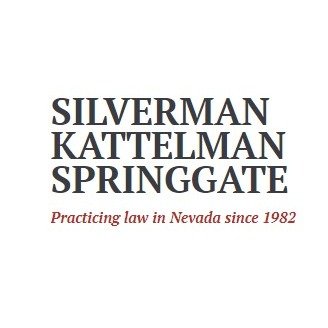Best Sanctions & Export Controls Lawyers in Nevada
Share your needs with us, get contacted by law firms.
Free. Takes 2 min.
Or refine your search by selecting a city:
List of the best lawyers in Nevada, United States
About Sanctions & Export Controls Law in Nevada, United States
Sanctions and export controls are laws and regulations that govern what goods, technologies, and services can be sent from the United States to other countries or foreign persons and entities. These laws are primarily federal, but individuals and businesses in Nevada are subject to their requirements. The purpose of sanctions is to prevent business with countries, organizations, or persons considered a threat to national security, foreign policy, or the economy of the United States. Export controls help prevent the export of strategic goods, including technology and military items, without proper authorization. Non-compliance can result in serious penalties, including hefty fines and criminal charges.
Why You May Need a Lawyer
Legal help is often necessary in the field of sanctions and export controls due to the complexity and high stakes of compliance. Common situations where you may need a lawyer include:
- Launching a business that exports goods or technology overseas
- Engaging in international transactions that may involve restricted parties or sanctioned countries
- Receiving a notice or subpoena from a government agency regarding a possible violation
- Navigating the often-updated list of restricted items and embargoed destinations
- Implementing internal company policies for export compliance
- Responding to enforcement actions, investigations, or audits
- Seeking export licenses or understanding license exceptions
Even unintentional violations can carry serious consequences, which is why experienced legal guidance is essential.
Local Laws Overview
Nevada businesses and individuals primarily follow federal sanctions and export control regulations, administered by agencies such as the U.S. Department of the Treasury’s Office of Foreign Assets Control (OFAC), the U.S. Department of Commerce’s Bureau of Industry and Security (BIS), and the U.S. Department of State’s Directorate of Defense Trade Controls (DDTC). Nevada does not have state-specific export control regulations but does enforce compliance with federal law. Local enforcement can be carried out by state authorities acting on federal mandates, and Nevada-based companies need to stay updated about federal regulatory changes. Key areas affecting Nevada include the export of technology, gaming equipment, and mining or defense-related products, which are all subject to controls.
Frequently Asked Questions
What are economic sanctions?
Economic sanctions are restrictions imposed by the government on trade, finance, or travel with certain countries, entities, or individuals to achieve foreign policy and national security objectives.
Who enforces export controls in Nevada?
Federal agencies such as OFAC, BIS, and DDTC are responsible for enforcing export control laws. Local law enforcement may also participate in investigations or enforcement actions as needed.
Do state laws in Nevada add additional requirements?
Nevada does not have separate export control or sanctions laws but strictly enforces compliance with federal regulations.
What are common items subject to export controls in Nevada?
Common items include advanced technology, software, dual-use goods, defense articles, aerospace components, and gaming technologies.
What are the penalties for violating these laws?
Penalties can include hefty civil fines, criminal prosecution, loss of export privileges, and damages to reputation. Even accidental violations can lead to strict enforcement actions.
Do I need a license to export goods from Nevada?
Certain items and destinations require an export license from federal agencies. The need for a license depends on the type of item, end-use, end-user, and destination country.
Can individuals be held liable for violations?
Yes, both individuals and businesses can be personally liable for violations of sanctions or export controls, including company officers and employees.
How often do export control laws change?
Regulations change frequently in response to global events and shifts in national policy. Regular monitoring and compliance reviews are necessary.
How can a lawyer help with government investigations?
A lawyer can help protect your rights, communicate with authorities, develop a response strategy, negotiate settlements, and defend you in any legal proceedings.
What should I do if I think I have violated sanctions or export controls?
Seek legal advice immediately. Voluntary disclosure may reduce penalties, but it is important to work with a lawyer to assess the situation and communicate with authorities properly.
Additional Resources
Several resources can help you stay informed and compliant:
- U.S. Department of the Treasury’s Office of Foreign Assets Control (OFAC)
- U.S. Department of Commerce’s Bureau of Industry and Security (BIS)
- U.S. Department of State’s Directorate of Defense Trade Controls (DDTC)
- Las Vegas U.S. Export Assistance Center
- Nevada District Export Council
- Greater Las Vegas Association of Exporters
- Local law firms specializing in international trade and export controls
Next Steps
If you believe you need legal assistance regarding sanctions or export controls in Nevada, consider the following steps:
- Document any facts and details related to your export activities or compliance concerns
- Consult a qualified attorney with experience in sanctions and export controls
- Review any communications or notices from government agencies with your lawyer
- Develop or update internal compliance procedures and training for relevant staff
- Keep informed on changes in laws and regulations that may affect your business or activities
Taking prompt, proactive steps with the guidance of a knowledgeable legal advisor can help you avoid costly mistakes and maintain compliance with complex U.S. sanctions and export controls regulations.
Lawzana helps you find the best lawyers and law firms in Nevada through a curated and pre-screened list of qualified legal professionals. Our platform offers rankings and detailed profiles of attorneys and law firms, allowing you to compare based on practice areas, including Sanctions & Export Controls, experience, and client feedback.
Each profile includes a description of the firm's areas of practice, client reviews, team members and partners, year of establishment, spoken languages, office locations, contact information, social media presence, and any published articles or resources. Most firms on our platform speak English and are experienced in both local and international legal matters.
Get a quote from top-rated law firms in Nevada, United States — quickly, securely, and without unnecessary hassle.
Disclaimer:
The information provided on this page is for general informational purposes only and does not constitute legal advice. While we strive to ensure the accuracy and relevance of the content, legal information may change over time, and interpretations of the law can vary. You should always consult with a qualified legal professional for advice specific to your situation.
We disclaim all liability for actions taken or not taken based on the content of this page. If you believe any information is incorrect or outdated, please contact us, and we will review and update it where appropriate.
Browse sanctions & export controls law firms by city in Nevada
Refine your search by selecting a city.













